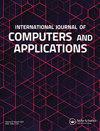Prioritizing software regression testing using reinforcement learning and hidden Markov model
Q2 Computer Science
International Journal of Computers and Applications
Pub Date : 2023-10-30
DOI:10.1080/1206212x.2023.2273585
引用次数: 0
Abstract
AbstractSoftware regression testing is an essential testing practice that ensures that changes made to the source code of an application do not affect its functionality and quality. Within this research, we introduce a novel method for prioritizing software test cases using a fusion of reinforcement learning and hidden Markov model to enhance the efficiency of the testing process. The primary objective of this research paper is to maximize the likelihood of selecting test cases that have the highest priority of uncovering defects in new code changes introduced into the codebase. To assess the efficacy of our suggested methodology, we experimented on the test cases of five web applications. Our results demonstrate that our proposed approach can accurately identify critical test cases while minimizing false positives, as evidenced by an F1 score of 0.849. This outcome can help prioritize testing efforts, saving time, and resources while improving the overall efficiency of the testing process.Keywords: Regression testingtest case prioritization (TCP)hidden Markov model (HMM)reinforcement learning (RL) Disclosure statementNo potential conflict of interest was reported by the author(s).Additional informationNotes on contributorsNeelam RawatMs. Neelam Rawat is a dedicated research scholar in the field of Computer Science & Engineering at Sangam University. With an extensive portfolio that includes over 15 publications, 3 patents, and 2 authored books, she is actively engaged in pioneering research. Her primary areas of expertise lie in the domains of machine learning, deep learning, software testing, software engineering, quality assurance, and management.Vikas SomaniDr. Vikas Somani (PhD, M.Tech, MCA,BCA) has more than 16 years of Teaching and Industrial Experience. Currently he is Associate Professor and Assistant Dean, School of Engineering and Technology at the Sangam University, Bhilwara. He has diversified research interests in the areas of Cloud Computing, Artificial Intelligence, Machine Learning, Block chain and Internet of Things (IoT). He is a Member of IEEE, CSI, IAENG, ACM, IRED. He has published over 35 Research Paper in International, National Journal and Conferences and attended around 50 Workshops and STP. He has also Supervised/Guided more than 20 Research Work. Currently, under his 6 research scholars are working. He has Three Patent awarded and granted/design one from Government of India Patent Office and another from Germany Patent Office. He has also published Five Patents.Arun Kr. TripathiDr. Arun Kr. Tripathi has more than 21 years of Teaching experience and completed Ph.D. in Computer Applications with specialization in Wireless Networks. Presently he is appointed as Head of Computer Applications with and an additional responsibility of Head Cyber Security and Forensic Science Division. His major research interests are Computer Network, Network Security, IoT, Machine Learning etc. with over 70 published works in reputed Journals and Conferences. He reviewed more than 35 SCI-Indexed journal articles.利用强化学习和隐马尔可夫模型确定软件回归测试的优先级
摘要软件回归测试是一种重要的测试实践,它确保对应用程序源代码所做的更改不会影响其功能和质量。在本研究中,我们引入了一种新的方法,利用强化学习和隐马尔可夫模型的融合来确定软件测试用例的优先级,以提高测试过程的效率。这篇研究论文的主要目标是最大化选择测试用例的可能性,这些测试用例在发现引入代码库的新代码变更中的缺陷方面具有最高的优先级。为了评估我们建议的方法的有效性,我们在五个web应用程序的测试用例上进行了实验。我们的结果表明,我们提出的方法可以准确地识别关键测试用例,同时最大限度地减少误报,F1得分为0.849。这个结果可以帮助确定测试工作的优先级,节省时间和资源,同时提高测试过程的整体效率。关键词:回归测试测试用例优先级(TCP)隐马尔可夫模型(HMM)强化学习(RL)披露声明作者未报告潜在的利益冲突。关于贡献者的说明。Neelam Rawat是Sangam大学计算机科学与工程领域的专门研究学者。她拥有广泛的投资组合,包括超过15份出版物,3项专利和2本著作,她积极从事开创性的研究。她的主要专业领域是机器学习、深度学习、软件测试、软件工程、质量保证和管理。Vikas SomaniDr。Vikas Somani(博士,M.Tech, MCA,BCA)拥有超过16年的教学和工业经验。目前,他是印度比瓦拉Sangam大学工程与技术学院副教授兼院长助理。他在云计算、人工智能、机器学习、区块链和物联网(IoT)等领域有广泛的研究兴趣。他是IEEE, CSI, IAENG, ACM, IRED的成员。他在国际、国内期刊和会议上发表了超过35篇研究论文,并参加了大约50个研讨会和STP。指导和指导科研工作20余项。目前,他手下有6名研究人员在工作。他拥有三项专利,一项来自印度政府专利局,另一项来自德国专利局。他还发表了五项专利。Arun Kr. tripathr。Arun Kr. Tripathi拥有超过21年的教学经验,拥有计算机应用博士学位,专攻无线网络。目前,他被任命为计算机应用主管,并兼任网络安全和法医科学部主管。主要研究方向为计算机网络、网络安全、物联网、机器学习等,在国内外知名期刊和会议上发表论文70余篇。他审阅了超过35篇sci索引期刊文章。
本文章由计算机程序翻译,如有差异,请以英文原文为准。
求助全文
约1分钟内获得全文
求助全文
来源期刊

International Journal of Computers and Applications
Computer Science-Computer Graphics and Computer-Aided Design
CiteScore
4.70
自引率
0.00%
发文量
20
期刊介绍:
The International Journal of Computers and Applications (IJCA) is a unique platform for publishing novel ideas, research outcomes and fundamental advances in all aspects of Computer Science, Computer Engineering, and Computer Applications. This is a peer-reviewed international journal with a vision to provide the academic and industrial community a platform for presenting original research ideas and applications. IJCA welcomes four special types of papers in addition to the regular research papers within its scope: (a) Papers for which all results could be easily reproducible. For such papers, the authors will be asked to upload "instructions for reproduction'''', possibly with the source codes or stable URLs (from where the codes could be downloaded). (b) Papers with negative results. For such papers, the experimental setting and negative results must be presented in detail. Also, why the negative results are important for the research community must be explained clearly. The rationale behind this kind of paper is that this would help researchers choose the correct approaches to solve problems and avoid the (already worked out) failed approaches. (c) Detailed report, case study and literature review articles about innovative software / hardware, new technology, high impact computer applications and future development with sufficient background and subject coverage. (d) Special issue papers focussing on a particular theme with significant importance or papers selected from a relevant conference with sufficient improvement and new material to differentiate from the papers published in a conference proceedings.
 求助内容:
求助内容: 应助结果提醒方式:
应助结果提醒方式:


